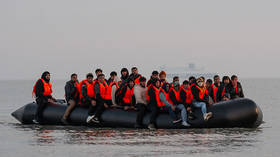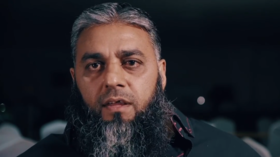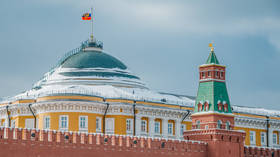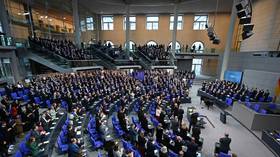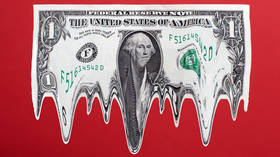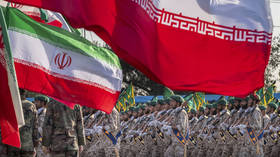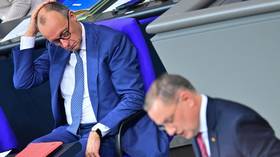Risks rising for migrants entering Europe through Balkans - UN
The UN refugee agency said on Friday that migrants trying to get into Europe from the Middle East and Africa through the Balkans are facing increased dangers from accidents on the railways they follow, as well as violence and abuse from criminal gangs.
Over the last two years, in addition to migrants trying to cross the Mediterranean, the so-called ‘Western Balkans route’ through Macedonia and Serbia has jumped in popularity, AP reports.
Although it is less dangerous than crossing the sea, the risks of taking the Balkan route are growing, as the number of migrants using it rises. Most of them come from Syria, Iraq, Afghanistan, Eritrea and Somalia, according to the UN.
The number of illegal crossings though the Balkans have jumped seven-fold from 6,391 in 2012 to 43,357 in 2014.
In Serbia alone, 22,000 asylum seekers were registered in the first five months of 2015 and 10,000 of these were in May. Civil society organizations in southern Serbia are dealing with up to 200 asylum-seekers every day in need of humanitarian assistance, according to UNHCR spokesman Adrian Edwards.
READ MORE: Record 4,200 migrants rescued at sea by Italian coastguard, 17 dead
In Serbia asylum seekers are not detained and the UNHCR is working with the authorities there to increase the support available. However, Macedonia is now amending its laws on temporary protection to make sure refugees crossing the country can get some legal help and humanitarian support.
The sheer number of people trying to get into Europe has hit the headlines across the continent. The European Commission has proposed a quota system to distribute asylum seekers among member states, but this was immediately rejected by at least 10 EU members, including the UK, France and Spain. Even Germany, which has in recent years been more accommodating to migrants and refugees, dubbed the idea “courageous but divisive.”
A number of EU politicians have come out with increasingly harsh rhetoric on the issue. The Hungarian Prime Minister Viktor Orban said the problem should be handled outside the EU until migrants have their individual cases evaluated.
“Migration is dangerous. I don’t consider it right that they send refugees to us. We think they should be stopped within Serbia,” he said.
So far this year, Hungary has received more than 50,000 asylum seekers compared to just 2,157 in 2012.
Some EU politicians have gone even further. Kristiina Ojuland, Estonia’s former foreign minister, said: “We should start a pan-European campaign to collect signatures to ensure not a single so-called refugee gets across the Mediterranean.”
Olli Sanders, a deputy councilor in Helsinki, Finland said: “It would require the forced sterilization of African men, which will effectively discourage them from trundling into our country.” His party later renounced his comments.
Italy, which along with Greece has been dealing with the brunt of the migrant crisis, expects to receive up to 200,000 refugees this year, and has been pushing the rest of the EU to do more to help.
Sources in Brussels have admitted the EU’s migrant distribution plan is now in tatters and that migrants will only be redistributed within the EU on a voluntary basis.
READ MORE: No place for asylum seekers: EU reportedly plans to kick out 29 of every 30 refugees
The problem has raised political tensions in Italy, with the head of the anti-immigration Northern League Matteo Salvini saying: “Europe doesn’t give a damn” about immigration quotas.
The fact that the issue is a Europe-wide problem is backed up the migrants themselves, many of whom say they are trying to get to Germany, Sweden or the UK.
Many hundreds of them are waiting in northern Italy until Germany reopens its borders next week, after tightening security as a result of the G7 meetings in Bavaria.
Dan Glazebrook, a political writer and journalist, said that some European countries are themselves to blame for the current refugee crisis.
“We’ve had European countries, Britain in particular, in total denial about their role in in creating the refugee crisis and mainstream parties responding to the rise of the far right by adopting ever more hostile rhetoric towards the migrants themselves,” he told RT.


